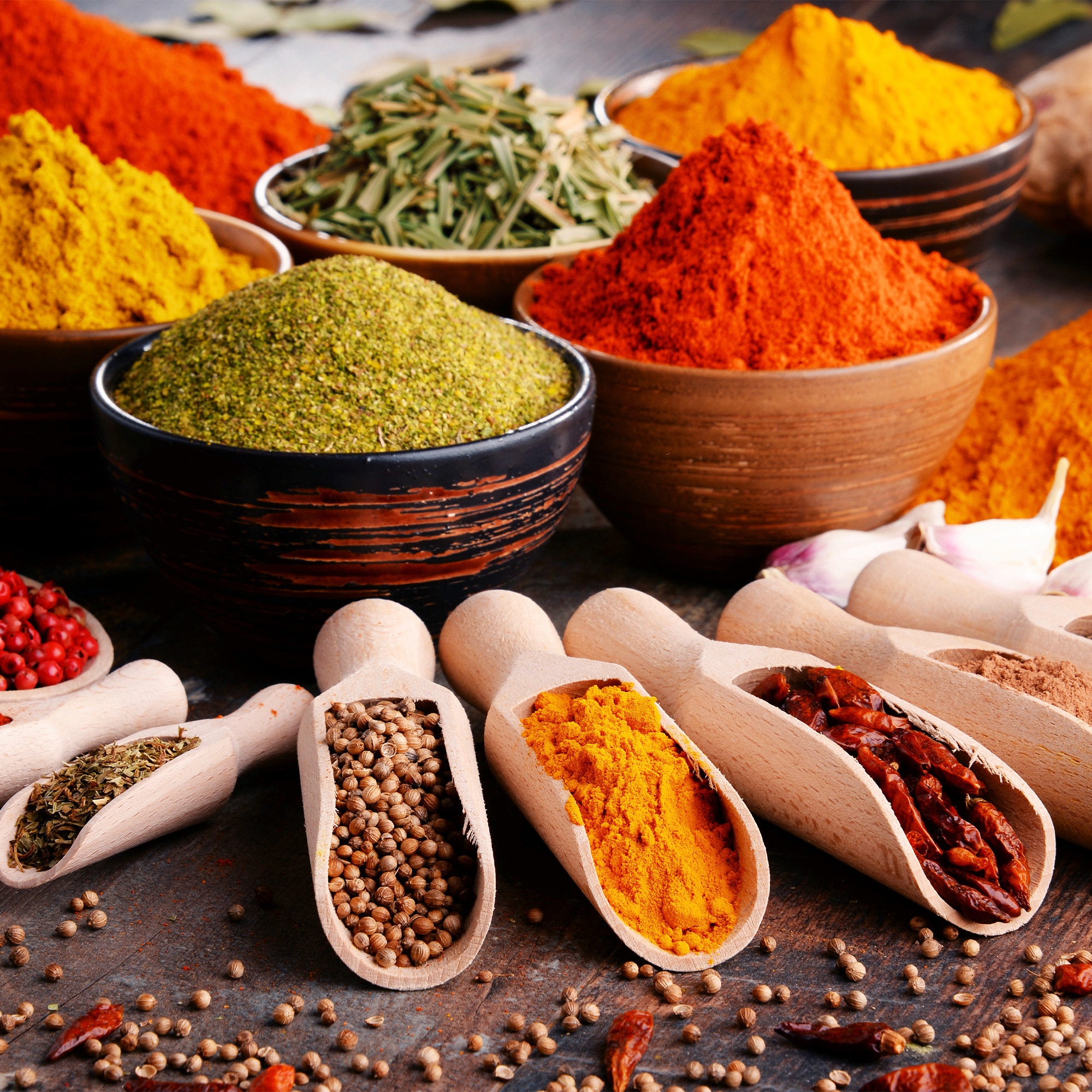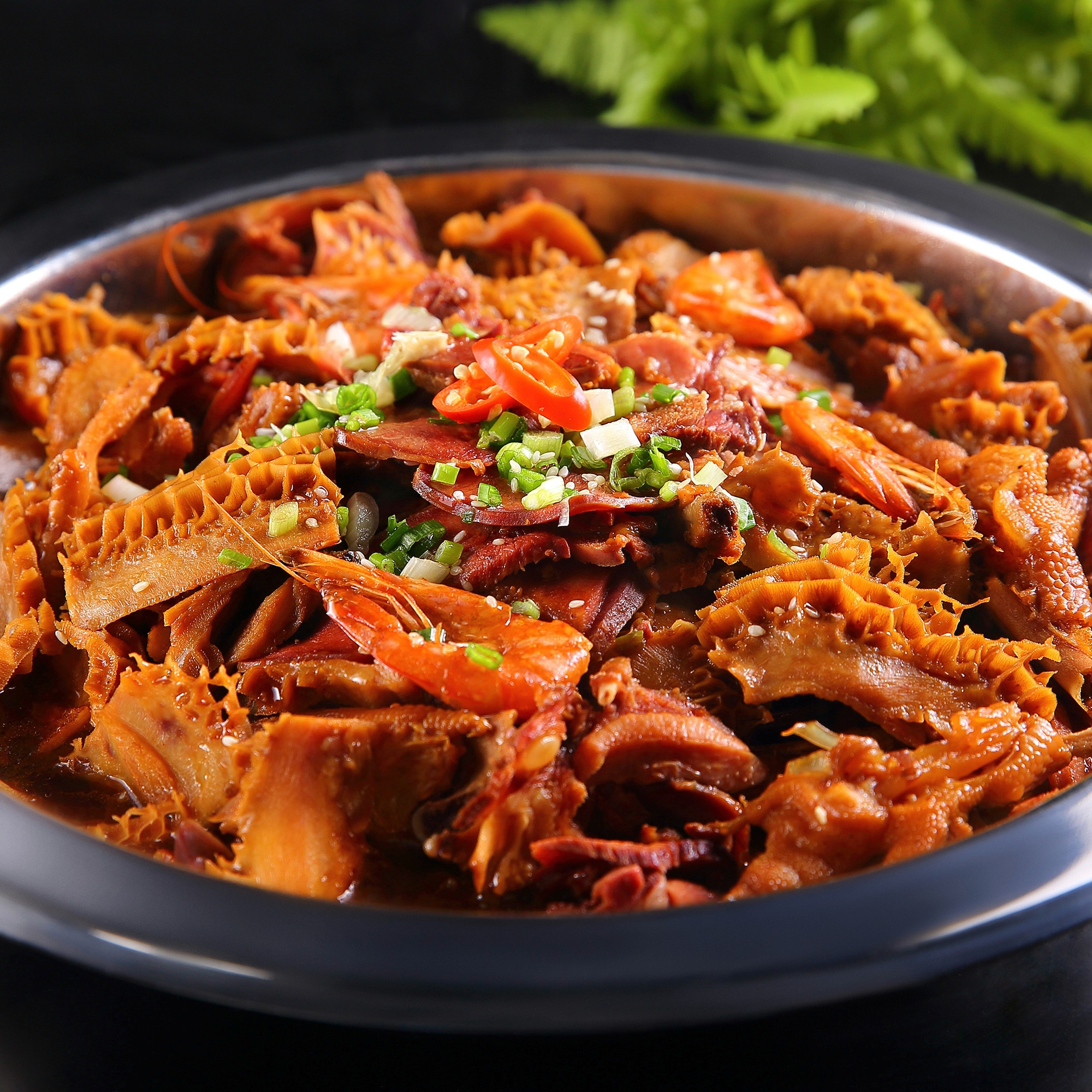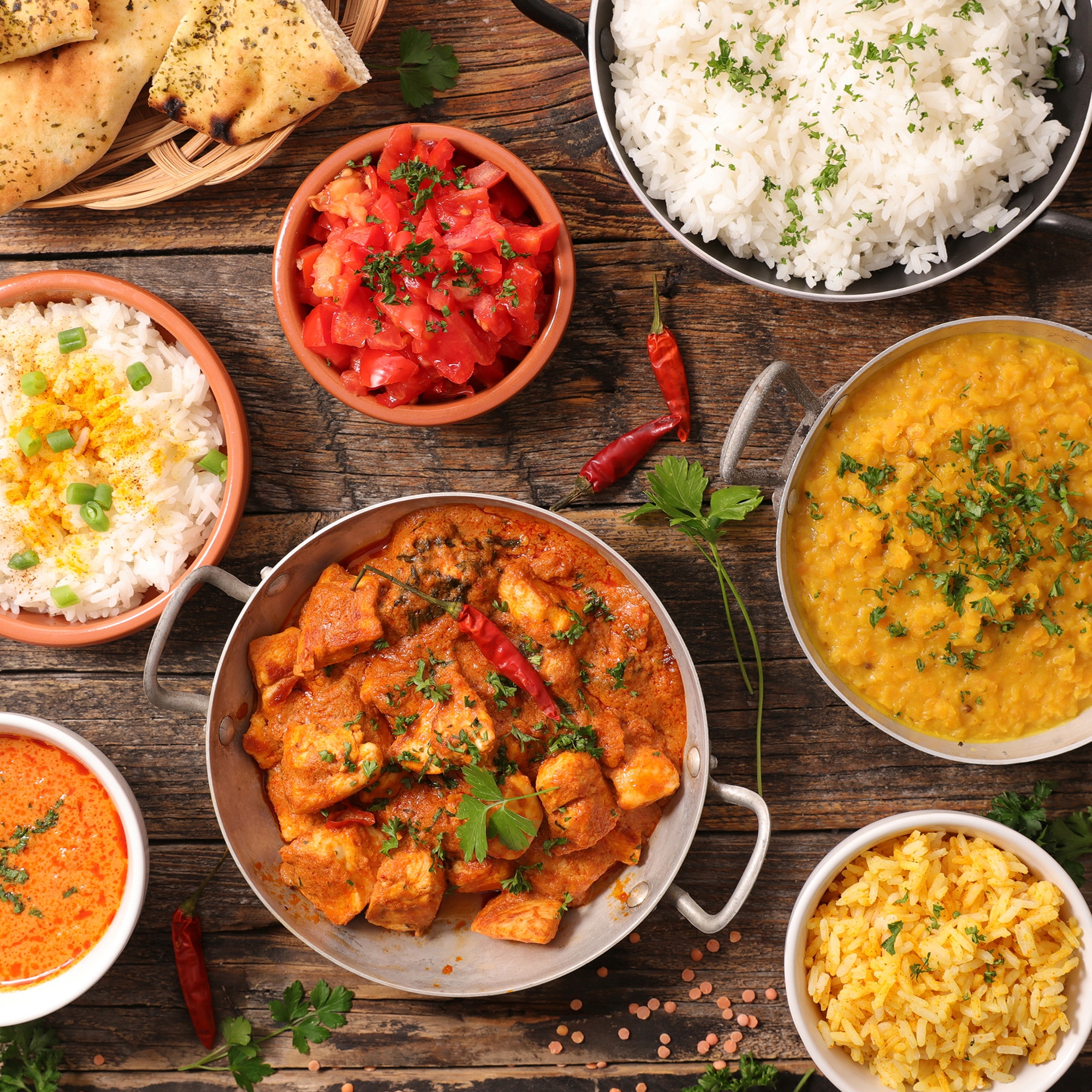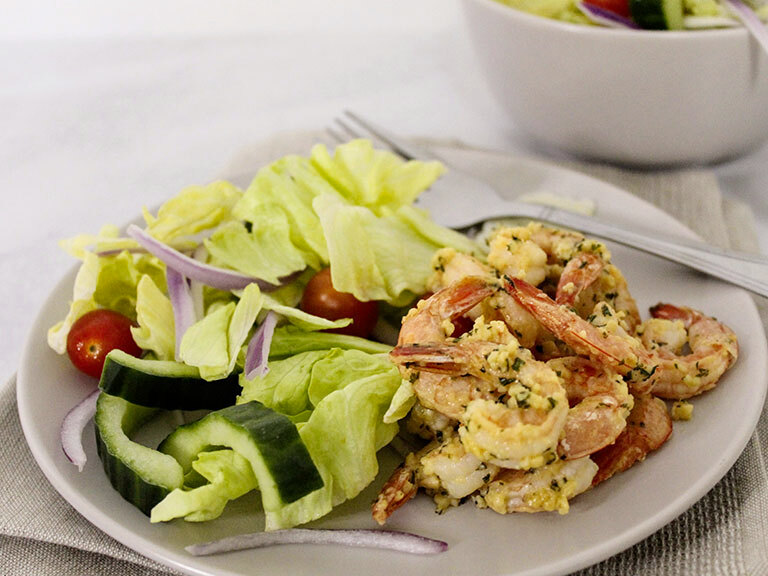Skip to:
All You Need to Know About Curry Powder

Seven Facts About Curry Powder You Might Not Know
Below is a compilation of seven curry powder facts to propel you to the status of curry queen.
Did you know?
1. Curry culture was brought to South Africa via the port city of Durban when the British brought indentured labourers from India to work in the agricultural industry between 1816 and 1911.
2. Curry powder is made from a mixture of spices and can include turmeric, ginger, fenugreek, garlic, cumin, and coriander among other ingredients.
3. Different curry recipes require different mixes of powders to achieve a very specific aromatic dish.
4. The oldest advertisement for curry powder appeared in a British Newspaper in 1784.
5. Despite what you might have heard, curry powder is not a staple product in Indian cooking. In India, garam masala is used to create what the British labelled “curry”.
6. Many endurance athletes use curry powder as a recovery aid because it contains turmeric which is said to be anti-inflammatory.
7. Curry powder is usually mustard yellow in colour and gives any dish a richness of flavour and added warmth.
Magical Meals And Endless Options
So how does one take this magic from your pantry and turn it into enchanted meals for the enjoyment of friends and family alike?
Curry powder is an incredibly versatile pantry essential. Its usefulness comes from the fact that it has the ability to enhance the flavour of the ingredients in any dish. Stews, pastas, curries, wraps, bakes, pies, stir-fries, and roasts are given a lift of warmth and a more complex taste profile when you add a teaspoon or two of curry powder.

To cook with curry powder, it is standard practice to fry chopped onions or spring onion and garlic in a little oil. Adding a teaspoon of curry powder in these beginning stages unlocks a wealth of flavour. Once the onions have softened you can brown your meat or veggies (in the case of a vegetarian recipe) in the mixture. This allows the curry powder to coat your ingredients and seal in the delicious, savoury taste.
Where you take your recipe from here is up to you. Why not try adding stock as illustrated in this Flavourful Chicken Curry Recipe and then serve it with basmati rice? Or try a Seafood Curry Pot with pilchards, mussels and prawns and serve it with crusty bread. This recipe is made with Rajah Medium Curry Powder.
If you’re feeling brave and your tastebuds enjoy a little heat, try this Sugar Bean Curry recipe. Substitute Rajah Mild & Spicy Curry Powder with Rajah Hot Curry Powder; the beans in this recipe balance some of the heat and you are left with a mouth-watering, flavourful meal.
Health Benefits Of Curry Powder
Now that we have explored curry powder’s South African origins and versatility, it’s time to consider whether there are any health benefits of curry powder.
Here are seven curry powder facts relating to your health and wellbeing:
1. Curry powder is said to help maintain your blood sugar levels. One study showed that the curcumin found in turmeric assists the regulation of sugars in the blood.
2. There is some evidence that the turmeric in curry powder may prevent cancer. The curcumin in turmeric may assist in the prevention of breast, ovarian, prostate, lung, colon, and bladder cancer.
3. It may boost digestive health. Studies have found that the ginger and curcumin in curry powder can boost digestive health and may relieve the symptoms of digestive disorders.
4. Curry powder has anti-inflammatory properties. Turmeric, coriander, and chilli pepper (which are all common curry powder ingredients) may relieve the symptoms of inflammatory diseases.
5. It may improve heart health. Studies have shown that blood vessel functioning, and blood flow may be improved by curry powder consumption due to its high antioxidant composition.
6. Curry powder may have antifungal and antibacterial benefits.
7. Curry powder may assist in the prevention of Alzheimer’s disease. According to some studies, the curcumin from the turmeric in curry powder may assist brain health and might prevent the onset of Alzheimer’s.

Putting healthy food on the table that tastes delicious is what being a home cook is all about. The versatility and depth of flavour you achieve by adding just a teaspoon or two of curry powder to your meals takes your dinner plate to another level. Knowing how to cook with curry powder, plus its incredible health benefits, makes stocking up on this pantry essential, well… essential!









